Board of Governors — Programs We Support
2003: First-In-Human Trial of Reprogrammed T cells for Glioblastoma
$150,000
The first Board of Governors grant provided the necessary funds for Michael Jensen, M.D., and Andrew Raubitschek, M.D., to begin the first-in-human trial of reprogrammed T cells for glioblastoma. This research has resulted in the first Food and Drug Administration-approved CAR T cell therapy, now available at City of Hope.
2004/2005: Infrastructure to Support Clinical Trials
$500,000 — Clinical lmmunobiology Correlative Studies Laboratory
$150,000 — Laboratory Specialist
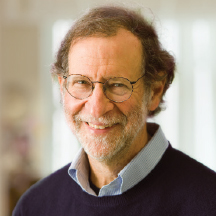
When City of Hope needed a more advanced laboratory to investigate the precise and in-depth probing of a patient’s immune system and responses during immunotherapy, the Board of Governors provided two grants totaling over $650,000 to help establish the Clinical Immunology Correlative Studies Laboratory (CICSL) with state-of-the-art equipment designed to do the precise analysis. The Board of Governors support also provided funds for a specialized laboratory supervisor needed to develop and implement additional analysis of immune cell functions and measure the status of the patient immune system during therapy.
The CICSL is now a valuable shared resource doing the analysis for several researchers in various fields of focus. The lab has initiated a number of Phase 1 and 2 clinical trials for glioma, B cell lymphoma, relapsed non-Hodgkin lymphoma, acute lymphoblastic leukemia, acute myeloid leukemia, multiple myeloma and ovarian cancer. This is now called The Adoptive Cell Immunotherapy Lab.
2006: Research Into a Key Protein for Cancer
$150,000 — STAT3 Protein Study (Fast Track)
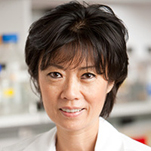
The Board of Governors provided Hua Yu, Ph.D., the Billy and Audrey L. Wilder Professor in Tumor Immunotherapy, seed money which enabled her to prove her initial findings on the STAT3 Protein. This grant allowed Yu to focus on a “fast track” process when no government funding was available.
2007: Clinical Research Advancement Fund
$500,000 — Fund Hiring Five Clinical Trial Physicians
The growth of the clinical trials program required an increase of doctors to treat and monitor patients in therapies being brought from the laboratory bench to the patient bedside. This grant was established to support the salary requirements for up to five doctors. These physician-researchers were specifically recruited to help design and then execute the Phase 1 and 2 trials ready for in-human treatment. Initially, three doctors were recruited in 2008 and the grant has allowed another five doctors to be recruited through 2012.
2009: Studies That Seek to Improve Care for Older Adults
$250,000 — Creating Geriatric-Specific Treatment Protocols
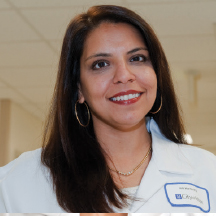
The Board of Governors grant to Arti Hurria, M.D., was to provide the funds for a study of the effects of chemotherapy in the older population. Her research to identify risk factors for severe chemotherapy side effects in older adults enrolled 500 patients from seven participating institutions across the U.S. The results of the study were published in the Journal of Clinical Oncology in 2011 and were identified by the American Society of Clinical Oncology as one of the “Clinical Cancer Advances in 2012.”
2011: Targeting the Mechanism Behind Cancer's Growth
$250,000 — Attacking the DNA That Replicates Cancer Cells
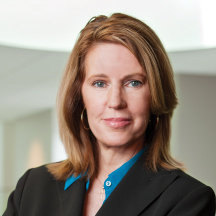
The Board of Governors provided Linda Malkas, Ph.D., the M.T. & B.A. Ahmadiania Professor in Molecular Oncology, a $250,000 grant to support her work in targeting the mechanism behind cancer’s growth.
UPDATE: Neuroblastoma is one of the most common childhood neoplasms, brain cancer. Malkas' team previously reported a novel cancer which was significantly expressed in a broad range of cancer cells, but not in nonmalignant cells. Malkas and her research team designed a molecule to test this hypothesis. Their investigation shows that this molecule selectively kills human neuroblastoma cells with very little toxicity to nonmalignant cells. They are working with pediatric oncologists to conduct preclinical testing.
2013: Merging of Eastern and Western Medicine
$100,000 — Using Natural Compounds Found in Traditional Asian Medicine
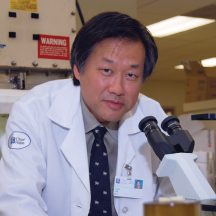
The Board of Governors grant to John Yim, M.D., was to assist with the opening of a Phase 1 clinical trial to study the effect of a compound found in a Chinese root, baicalein, which has been studied to activate a protein that causes cancer cells to kill themselves and makes them more susceptible to the person’s immune system.
2013: The Smart Bomb Approach to Curing HIV/AIDS
$100,000 — BioRad QX100 Droplet Digital PCR Instrument
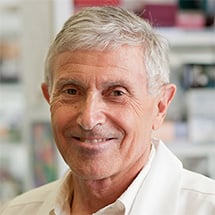
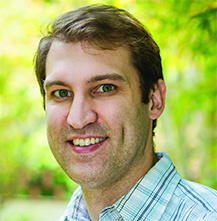
This grant was used to purchase a BioRad Qx100 Droplet Digital PCR Instrument that has been used by John Rossi, Ph.D., Lidow Family Research Chair, and John C. Burnett, Ph.D., in the Department of Molecular and Cellular Biology to measure the levels of cancer markers and to test new therapeutics which may reduce the levels of cancer cells.
2014 Activation of the Immune Response to Fight Cancer: The "PAC-MAN" Strategy
$200,000 — Develop and deliver therapeutic small molecule to cells capable of blocking cancer growth
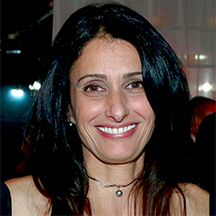
Daniela Castanotto, Ph.D., a research professor in the Department of Medical Oncology & Therapeutics Research, and her research team worked on creating a small RNA or DNA molecule that can identify abnormal cells or HIV-infected cells and deliver a “therapeutic cargo” directly and only to those cells.
2015 Next Generation Drug Discovery: New technology to radically accelerate drug discovery
$200,000 — Revolutionize how drugs are discovered and how they are delivered.
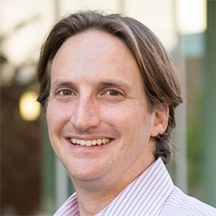
Jacob Berlin, Ph.D., an assistant professor in the Department of Molecular Medicine at Beckman Research Institute of City of Hope, and his team completed the first prototype of a system that will revolutionize the discovery of new drugs to fight cancer. They are developing a method to place 1 billion different molecules on a microscope slide-sized chip using nanotechnology, the science of extremely small things. These chips will then be used to identify which molecules are good potential drugs for proteins that other researchers at City of Hope have identified as promising new areas for treating cancer. This will revolutionize and accelerate how drugs are discovered and how they are delivered.
2018 Building a Better CAR: Immunotherapy for Children with Brain Tumors
$250,000 — Understanding the Pathways Responsible for CAR T Cell Activity and Survival
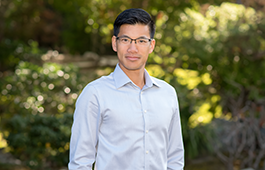
Leo Wang, M.D., Ph.D. is working in the laboratory to improve CAR T cells for brain tumor therapy. Achieving a better understanding of the pathways responsible for CAR T cell activity and survival will enable the maximization of CAR T cell persistence without sacrificing potency and will be critical to solving the problem of how to keep CAR T cells from disappearing. This project is the realization of a vision that started at City of Hope over 10 years ago, supported by one of the first grants sponsored by the Board of Governors. Michael Jensen, M.D., pioneered the development of the CAR T cells that were used in our recent and ongoing clinical trials, and Wang is honored to be part of the first team to use these cells to treat children with glioblastoma. Simultaneously, his lab work will continue to improve this therapy so that one day, hopefully, it will be able to cure children of their brain cancers.
2019: Stem Cell Targeted Cancer Therapies
$250,000 — Help Support a Staff Scientist, Research Associate and Animal Technician in the Aboody lab
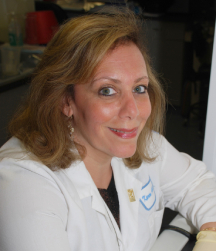
Karen Aboody, M.D., is a professor in the Department of Developmental and Stem Cell Biology and leads a translational research laboratory focused on neural stem cells (NSCs) as a platform for targeted delivery of therapeutic agents to invasive and metastatic solid tumors. Her pioneering discoveries of the inherent tumor-homing properties of NSCs were initially applied to delivering chemotherapy payloads to invasive brain tumors, leading to first-inhuman clinical trials at City of Hope. These trials demonstrated safety and proof of concept for NSC localization of anti-cancer agents to tumor sites throughout the brain. Her later research demonstrated the ability of these NSCs to target solid tumors throughout the body, including breast, prostate and ovarian metastases. This funding supports preclinical research using the NSCs to deliver novel tumor-killing viruses to metastatic tumor sites. Importantly, this ‘virotherapy’ is effective against chemo-resistant and radio-resistant tumor cells, which are often the cause of recurrence and poor prognosis.
2020: Advancing on Our Investment
Actualizing AOH1996’s promise for pancreatic cancer and neuroblastoma
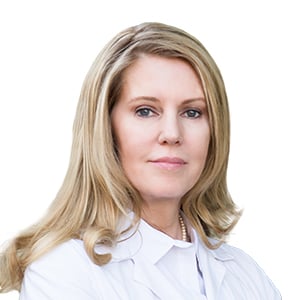
Linda Malkas, Ph.D., was previously funded in 2011 to target KRAS, a gene found to be mutated in nearly all pancreatic cancers — and which has long been one of the most elusive therapeutic targets in cancer research. City of Hope is pursuing the theory that transcription-replication conflicts represent a significant vulnerability in the disease. Transcription, the process by which cells transfer genetic information, and replication, in which cells divide into new ones to continue performing the duties dictated by that information, are crucial to our individual survival. However, when collisions instead of harmonious cooperation occur, the resulting instabilities can give rise to cancer.
CAR T for Pediatric Glioblastoma

With an earlier Board of Governors investment in 2018, Leo David Wang, M.D., Ph.D., has been working in the laboratory to improve CAR T cells for brain tumor therapy. Achieving a better understanding of the pathways responsible for CAR T cell activity and survival will enable the maximization of CAR T cell persistence without sacrificing potency and will be critical to solving the problem of how to keep CAR T cells from disappearing. This project is the realization of a vision that started at City of Hope over 10 years ago, supported by one of the first grants sponsored by the Board of Governors. Michael Jensen, M.D., pioneered the development of the CAR T cells that were used in our recent and ongoing clinical trials, and Wang is honored to be part of the first team to use these cells to treat children with glioblastoma. Wang and his team work to improve this therapy to offer new hope to young glioblastoma patients. Since the Board of Governors funding, Wang has submitted an R01 application to the National Cancer Institute to support pediatric brain tumors. The research project (R01) grant is an award made to support a discrete, specified, circumscribed project to be performed by the named investigator(s) in an area representing the investigator’s specific interest and competencies, based on the mission of the National Institutes of Health. RO1 grants are subject to strenuous peer review and require a cost-sharing component. Those projects receiving this award are exceptionally promising and important to benefit patients. This RO1 grant for Wang’s project is instrumental to the program as it will enable us to treat patients under 18 years of age and offer a full complement of cellular products. The estimated budget for up to 18 patients is estimated between $3.5 to $4 million for this trial. The host institution needs to demonstrate cost-sharing in the grant application. Based on funding already identified, we are seeking an additional $1.2 million in funding. Of that sum, $150,000 has thus far been identified. The additional funding from the Board of Governors will advance Wang’s effort to initiate the 18-patient trial.
More detailed information on any of the above research projects is available by calling 626-218-6375.
The following doctors have all benefited from the Board of Governors grant toward their research. Their areas of expertise cover cancer, immunotherapeutics, tumor immunology, surgery, oncology, hematology, neurological spine, hematopoietic cell transplantation and molecular/cellular biology:
Karen Aboody, M.D., Saro Armenian, D.O., M.P.H., Jacob Berlin, Ph.D., John C Burnett, Ph.D., Robert Figlin, M.D., F.A.C.P. (no longer at City of Hope), Stephen Forman, M.D., Julio Garcia-Aguilar, M.D., Ph.D., Ernest S. Han, M.D., Ph.D., Arti Hurria, M.D., Rahul Jandial, M.D., Ph.D., Michael Jensen, M.D. (no longer at City of Hope), Michael Kalos, Ph.D. (no longer at City of Hope), Theodore G. Krontiris, M.D., Ph.D., Laura Kruper, M.D., Linda Malkas, Ph.D., Renee Penn, M.D., Andrew Raubitschek, M.D., John Rossi, Ph.D. Timothy W Synold, Pharm.D., John Hosei Yim, M.D., Hua Yu, Ph.D., Daniela Castanotta, Ph.D., Leo Wang, M.D., Ph.D.